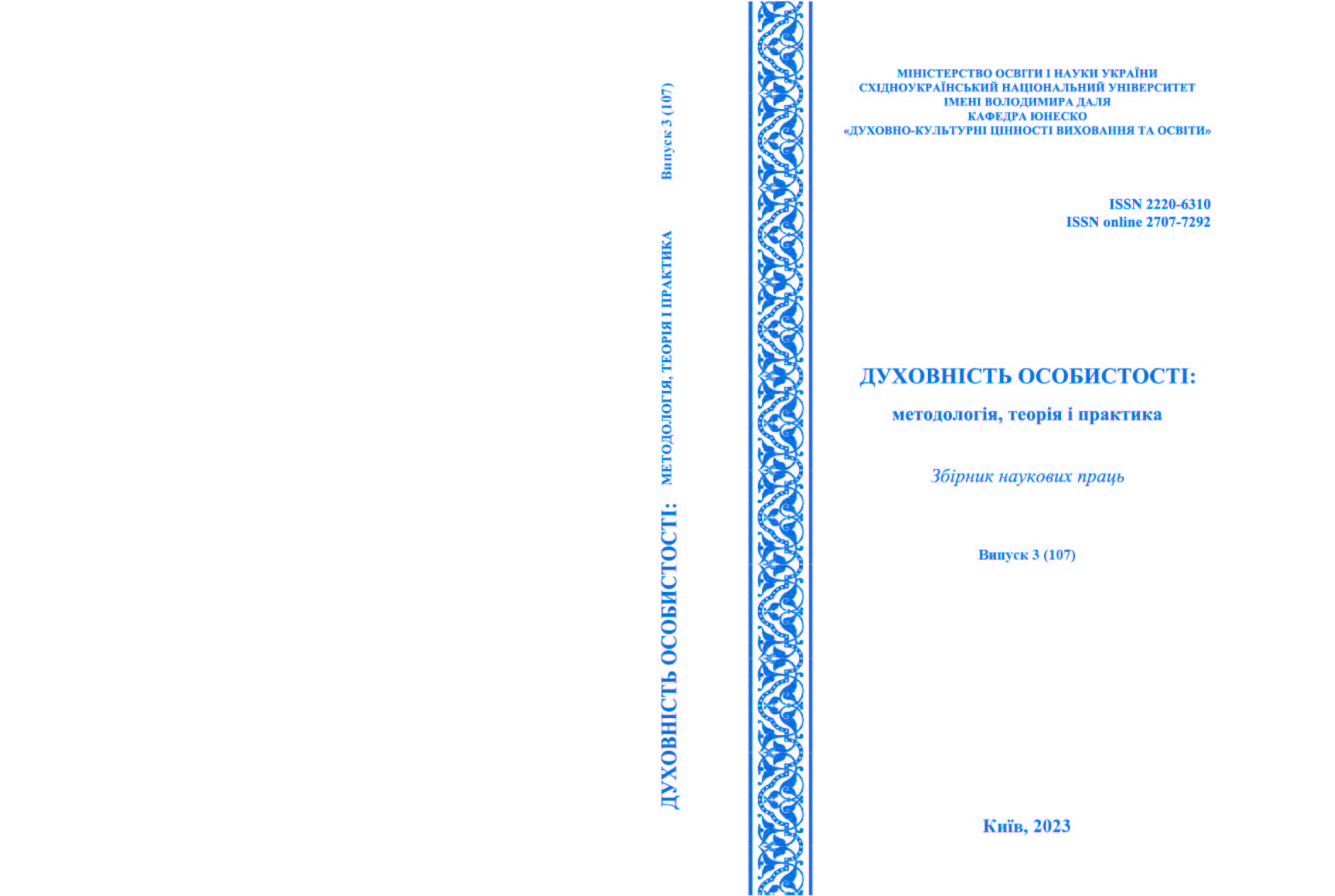SPIRITUALITY OF PERSONALITY IN THE LIGHT OF KNOWLEDGE, RHETORICAL IMAGES OF THE TIME, AND MASTERING ONE’S OWN FUTURE. PART II. EDUCATION – STATE – GOVERNANCE – WORLD OF PROJECTS
DOI:
https://doi.org/10.33216/2220-6310/2023-107-3-114-147Keywords:
spirituality, personality, spirit, education, training, upbringing, meaning, values, virtues, communication, activity, time, future, forecasting, project, consultant, analyst, expert, implementer, administrator, self-awareness, language, practical rhetoric, rhetorical ‘Aristotle’s axiomatics, governance, authority, state, oratory, legislative, executive, judiciary power, president, constitution, conflict, problem, problematization, classification, speechAbstract
The article is the second of two parts of a new original study devoted to the problem of spirituality in its philosophical, educational, communicative, rhetorical, and governance dimensions. It continues the author’s two-decade-long series of publications on issues of spirituality, education, communicative principles of governance and power, as well as on rhetorical classification of speeches and problems. A stress is placed on the proper rhetorical principles of the distribution of state power, fundamental conflicts in the field of state governance and appropriate methods of peaceful communication with the authorities, and at the same time on their educational and spiritual dimensions. Taking into account and against the background of the outlined problems, an analysis of the main problem areas of thinking and speech is presented. The article uses material from the author’s lecture course ‘Practical Rhetoric and Communication Management’.
In the Preamble of this second part of the study, a new yet related to the previous set of problems is outlined, which in their own way define the communication of a person with one’s own future.
Chapter I presents temporary images of authority, rhetorical distribution of power, and types of conflicts between citizens and the state as a mandatory subject of civic education of personality in a democratic state.
Chapter II defines the phenomenon of problematicity, presents directions and ways of problematizing life, temporal images of problems and their rhetorical classification in accordance with the rhetorical classification of speeches. The problem area of being is identified as a space of continuous education of personality on the way to one’s own authenticity.
In the Epilogue, directions for further research are defined.

